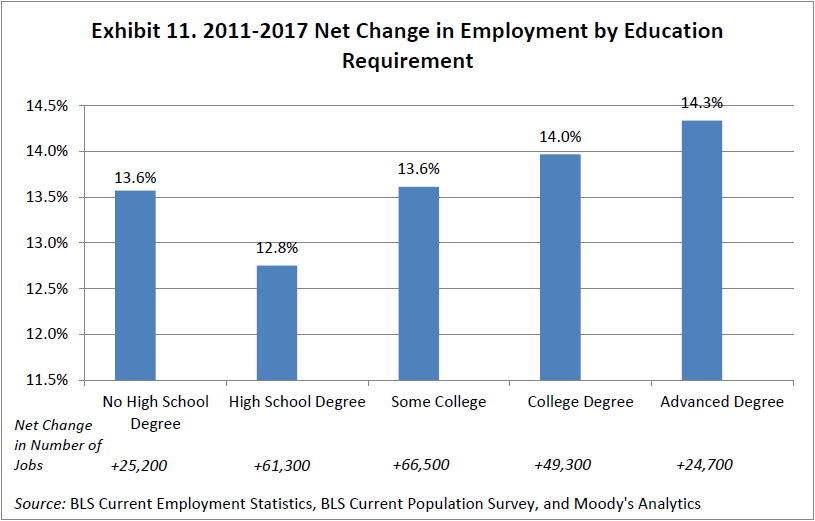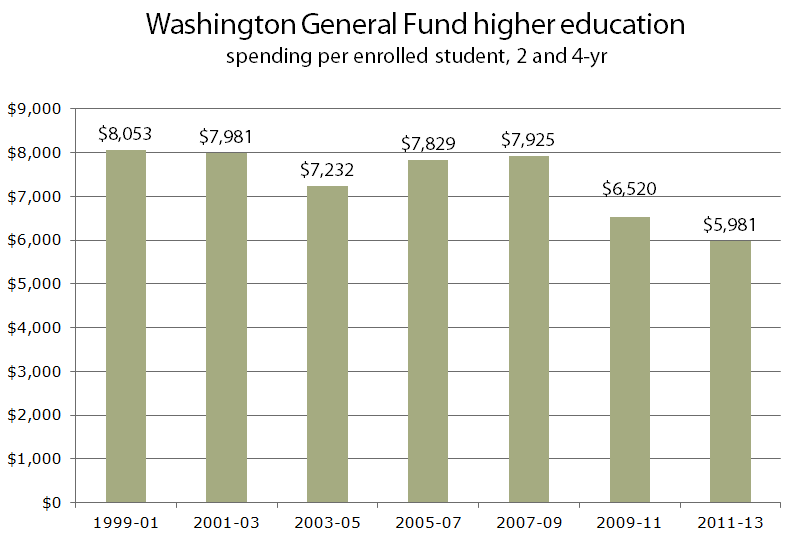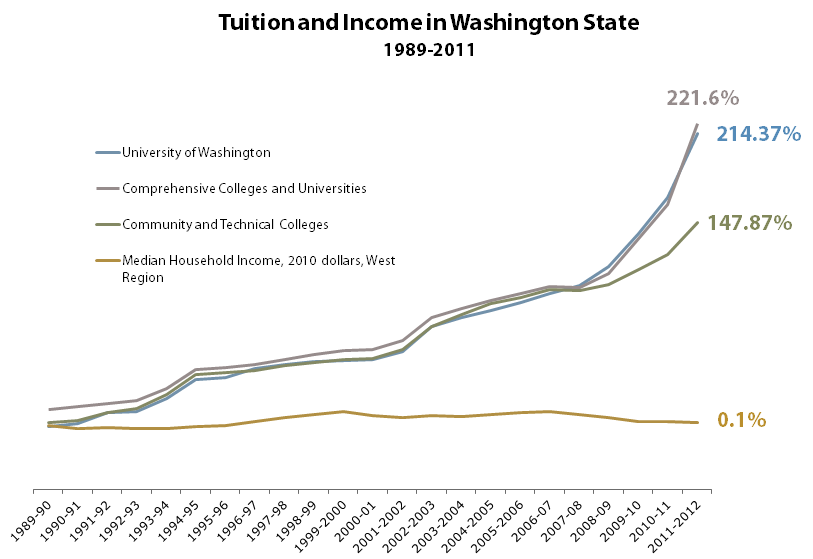The more education you have, the better your prospects in both recession and recovery – but Washington state is putting higher ed further out of reach
While the Great Recession officially ended three years ago, millions of workers and their families nationwide are still struggling. Overall employment remains far below pre-recession levels, and the Congressional Budget Office predicts it will remain above 8 percent through 2013. But that’s likely not the case if you have a college or advanced degree.
According to a new report from the Urban Institute, less-educated workers were still losing jobs at a significant rate in 2010 despite overall growth in the economy as a whole. Seattle was no exception. The unemployment rate for all Seattle workers was 9.4% in 2010 – but 14.8% for those with only a high school diploma, and 18% for those without a high school diploma.
Workers with a college degree experienced an entirely different economic reality: Their unemployment rate was below average at only 6 percent. And those with an advanced degree had an unemployment rate of only 3.9 percent.
Those differences aren’t just limited to this recession, either. The report paints a grim future for less-educated workers in Seattle.
For one thing, jobs requiring a bachelor’s or advanced degree are expected to grow at a faster rate than jobs requiring only a high school diploma or some college. And when less-educated workers do find a job, chances are it will pay much less than it used to: median earnings for the average high school graduate hit an historic low in 2010.

In the near future, jobs requiring a bachelor’s or advanced degree are expected to grow at a faster rate than jobs requiring only a high school diploma or some college.
The logical conclusion is that if we want people to get and keep jobs, then higher education (including adult education programs for workers transitioning to new jobs) needs to be available and affordable now and in the future.
All well and good, except for one simple fact: our elected representatives in the Washington legislature are going in the exact opposite direction by cutting funding for higher education, driving up tuition costs and reducing available slots in public colleges and universities.
Future improvements in Washington’s employment picture are tied directly to access to higher education and workforce training programs. If our legislators accept this fact – and recognize the stark economic realities facing less-educated workers by restoring full funding for our state’s colleges and universities – the future needn’t be so grim for so many of Washington’s families.
~ By EOI Intern Travis Crayton
More To Read
May 19, 2025
A year of reflections, a path forward
Read EOI Executive Director's 2025 Changemaker Dinner speech
March 24, 2025
Remembering former Washington State House Speaker Frank Chopp
Rep. Chopp was Washington state’s longest-serving Speaker of the House
February 11, 2025
The rising cost of health care is unsustainable and out of control
We have solutions that put people over profits



